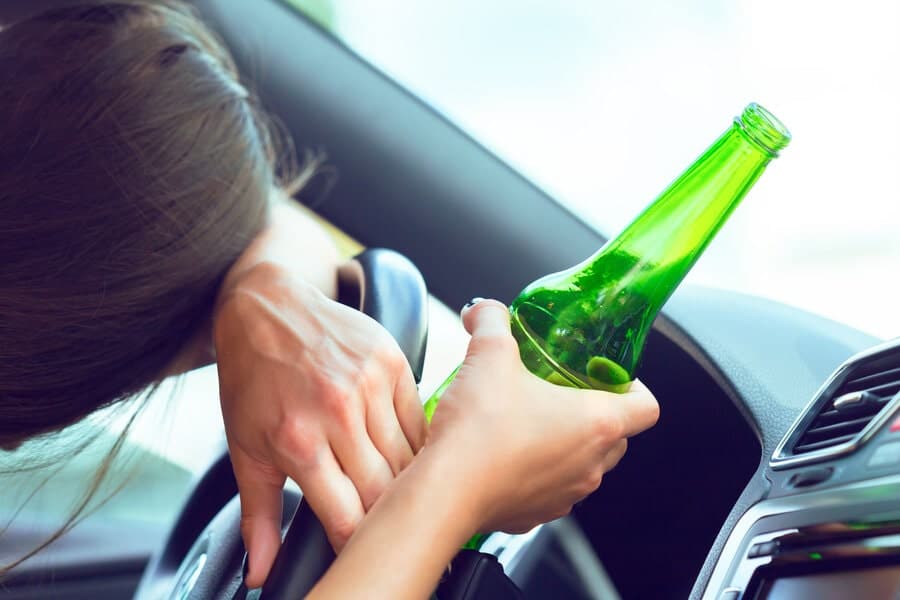Today, we’ll delve into the laws on ‘Driving Under the Influence’ (DUI) in California as it carries significant legal effects. One must know what distinguishes a felony DUI and a misdemeanor DUI. This article presents all that – from detailed California DUI laws, factors affecting DUI categories, to penalties incurred, and even defense strategies and mitigating aspects.
DUI laws in California
DUI in California—driving while intoxicated by alcohol, drugs, or both—is a serious crime. Strict laws are enforced to discourage drunken driving and ensure road safety.
The deciding factor for a DUI offense is often the driver’s blood alcohol concentration (BAC) level. The legal BAC limit for most drivers is 0.08% in California. If a driver’s BAC matches or exceeds this limit, they’re liable for a DUI offense. But, don’t be mistaken, drivers can still face charges even if their BAC falls under this limit if they demonstrate signs of impairment.
It’s important to note that specific groups of drivers have a lower BAC limit. People under 21, who legally can’t drink, face a BAC limit of 0.01%. This strict rule shows the state’s endeavor to guard young drivers and prevent underage DUIs. Commercial drivers like truck and bus operators have a BAC limit of 0.04%. This accounts for the added risk and duty of driving larger vehicles.
If a driver in California is apprehended for DUI, they could face criminal and administrative penalties. Criminal charges may lead to fines, probation, mandatory alcohol learning courses, and possibly jail. Prior convictions and offense severity matter too.
It’s crucial to know that a DUI conviction consequences spill over beyond the courts. A DUI offense can greatly affect your personal and work life. It can cause insurance rates to rise, employment hurdles, and tarnish reputation. Accidents resulting from DUI, especially those causing injuries or death, carry steeper legal penalties.
DUI offenses are serious, and understanding and following California’s DUI laws are pivotal. That means making wise choices and not driving under alcohol or drug influence. Instead, consider other travel options like designated drivers, rideshares, or public transportation when unable to drive.
Ultimately, the goal of California’s DUI laws is to protect the safety and well-being of all road users. By enforcing strict penalties for DUI offenses, the state aims to discourage impaired driving and promote responsible behavior on the roads. It is everyone’s responsibility to prioritize safety and make choices that prevent harm to themselves and others.
Importance of understanding DUI classifications
Something is still unclear, and it’s the normal question among people: is drinking and driving a felony? Well, not necessarily. Understanding DUI classifications is crucial as they determine the severity of the charges and the associated legal ramifications, especially recognizing if a DUI is a misdemeanor or felony. Knowing the difference between a DUI misdemeanor and a felony can help individuals charged with a DUI to weigh their options, make informed decisions, and adequately prepare for their defense.
When it comes to DUI classifications, it’s important to explain that the severity of the charges can vary depending on several factors, and they can result in a felony. These factors may include the BAC level at the time of arrest, any prior DUI convictions, any aggravating circumstances, and the specific laws of the jurisdiction in which the offense occurred.
A DUI felony is typically considered a more serious offense than a DUI misdemeanor. In most jurisdictions, a DUI is classified as a felony if certain aggravating factors are present. These factors may include causing serious bodily injury or death while driving under the influence, having multiple prior DUI convictions, driving with a suspended or revoked license, or having a high BAC level significantly above the legal limit.
Being accused of a DUI felony is a serious matter. It often comes with stern legal consequences. The jail sentence may be extended, fines may be steep, alcohol education or therapy may be compulsory, probation could be a reality, and losing the privilege to drive could last a long while. Moreover, it might adversely affect personal and career aspects, making securing jobs and shelter tough. This is especially true in the case of a drunk driving felony, which could also implicate the possession and future use of your vehicle.
In contrast, a DUI misdemeanor is viewed as a lesser crime. Penalties related to it, although substantial, are usually less rigid than a drunk driving felony. Being charged with misdemeanor DUI could lead to brief jail terms or probation, diminished fines, obligatory DUI awareness programs, and a short-term ban on driving.
Knowing the difference between DUI misdemeanor and felony is vital for those with DUI accusations. By being aware of the possible legal outcomes, decision-making can be more informed regarding the optimal defense approach, picking suitable legal representation, and steps in reducing the charge’s effect.
Still, it’s important to clarify that DUI laws and categories differ in different states. It’s paramount to engage a competent lawyer skilled in DUI defense in the offense’s jurisdiction. Such a lawyer can offer advice, clarify potential outcomes, and assist in maneuvering intricate legal proceedings. Don’t miss your chance – contact our criminal defense attorneys today!
Factors Influencing DUI Classification
DUI offense classification in California is impacted by many factors. Here’s a look at a few key elements that influence whether is marked as a DUI misdemeanor or DUI felony:
- Prior DUI convictions
The existence of former DUI convictions can raise the chances of a DUI facing a felony charge. Repeated infringements within a certain period can bring harsher penalties.
In assessing past DUI convictions, the court weighs the count of prior offenses and the break from the last crime. A singular past DUI may lead to a harsher classification, but multiple within a brief span can greatly alter the strictness of the charge.
The court might also weigh the specific contexts of each past offense. If prior DUI charges involved complicating factors, like injuring others or property damage, the chances of a felony charge rise.
- Presence of aggravating factors
Complicating factors, like overspeeding, reckless driving, and inciting an accident while intoxicated, can upgrade a DUI indictment to a felony. These aspects signify a greater danger and disregard for communal safety.
Excessive speeding, for example, can be determined by comparing the driver’s speed to the posted speed limit or the prevailing traffic conditions. If the driver was significantly exceeding the speed limit or driving at a speed that posed a danger to others, it could be considered an aggravating factor.
Reckless driving, which involves a willful and wanton disregard for the safety of others, can also contribute to a DUI being classified as a felony. This may include actions such as weaving in and out of traffic, running red lights, or engaging in other dangerous behaviors while under the influence.
Additionally, causing an accident while driving under the influence can have serious consequences. If the accident results in injuries or fatalities, the DUI charge is more likely to be classified as a felony due to the significant harm caused.
- Impact of Legal Representation
The quality of legal representation can also impact the classification of a DUI offense. Skilled DUI defense attorneys can negotiate with prosecutors and present compelling arguments to potentially reduce a felony charge to a DUI misdemeanor or obtain a favorable outcome for their clients.
Experienced DUI defense attorneys understand the intricacies of DUI laws and have a deep understanding of the legal system. They can identify potential weaknesses in the prosecution’s case and develop effective defense strategies to challenge the evidence presented.
Through careful negotiation, defense attorneys may be able to convince prosecutors to reduce a felony DUI charge to a misdemeanor. This can result in less severe penalties, such as reduced fines, shorter license suspension periods, or alternative sentencing options.
Expert criminal defense lawyers in California might consider other solutions, like courses that change behavior or recovery programs. These can tackle deeper problems linked to the DUI offense. These types of programs can help the person but also show the court their dedication to bettering themselves.
What Is The Difference Between A DUI Felony And DUI Misdemeanor?
Now that we know the value of understanding DUI categories, let’s dissect the difference between a DUI felony and a DUI misdemeanor.
When Is a DUI a Misdemeanor in California?
In California, most DUI offenses are tagged as misdemeanors. However, specific criteria must be met for it to categorize the DUI as a misdemeanor:
- Misdemeanor DUI criteria
Usually, a DUI is tagged as a misdemeanor for a first or second offense in a ten-year range, with no exacerbating factors, and no injuries or deaths resulting from the DUI incident.
- General penalties for misdemeanor DUI
First-time DUI (Driving Under the Influence) offenders regularly face plenty of criminal punishments. Fines, probation, and pressured participation in alcohol training applications are frequent sanctions, depending on the jurisdiction. Furthermore, first-time offenders may also have their driving force’s license suspended for a hard and fast duration of time. Factors like as the driver’s blood alcohol content (BAC) at the time of arrest and if there were hectic circumstances, inclusive of reckless riding, can impact the severity of these punishments.
For individuals with more than one DUI conviction, the penalties become more extreme. Repeat offenders often face escalating fines, longer license suspensions, and mandatory prison terms. Courts can also order the installation of an ignition interlock device that requires the powertrain to pass a breathalyzer test before starting the vehicle. These stricter consequences are intended to deter people from repeat drinking and to protect public safety. In some cases, habitual DUI offenders may be required to undergo substance abuse treatment as part of their sentencing. Penalties for repeat DUI offenses are usually designed to respond to the increased chance presented by people who are under the influence regardless of previous convictions.
- Aggravating factors leading to enhanced penalties
While many cases of DUI are misdemeanors, some circumstances make the penalties tougher. Consequences can increase for cases with high blood alcohol levels, DUIs causing injury, or minors in the car. This could mean bigger fines, longer probation, and required alcohol treatment programs, as we mentioned above.
Sometimes, however, a DUI can be a felony in California. Let’s look at the times a DUI could be considered a felony.
When a DUI Is a Felony In California?
In certain conditions, a DUI becomes a felony. This happens when factors show greater risk and danger. These factors can include many DUIs in ten years or if a DUI causes severe injury or a fatality.
Penalties for felony DUI
Getting a DUI called a felony can bring tough consequences, tougher than a misdemeanor. You might face jail time, big fines, mandatory alcohol or drug treatment, and a longer license suspension. Also, people with a felony DUI might get labeled as habitual offenders.
Aggravating circumstances for felony DUI
Felony DUI (Driving Under the Influence) charges often involve aggravating circumstances that elevate the offense to a more serious level. Two common aggravating factors are multiple DUI convictions and DUI incidents causing serious injury or death.
Multiple DUI Convictions:
Imagine finding yourself on the precipice of felony DUI charges because of multiple DUI convictions on your record. For those with a history of driving under the influence, the stakes get higher, and the threat of enhanced penalties, potentially including a felony charge, becomes very real. The legal system doesn’t take lightly a repeated pattern of impaired driving, acknowledging it as a major concern that needs serious attention.
DUI Causing Serious Injury or Death:
The gravity of a DUI reaches its peak when it results in serious injury or death. If someone under the influence causes a crash leading to harm or loss of life, the legal fallout intensifies. The DUI offense often becomes a felony, bringing with it hefty penalties like long prison sentences, hefty fines, and extended license revocation. These consequences highlight how crucial it is to recognize the impact of impaired driving, not just on individuals but entire communities.
Factors That Elevate a DUI from a Misdemeanor to a Felony
Some conditions can boost a DUI from a misdemeanor to a felony. Many DUIs in ten years suggest a dangerous pattern, while a DUI causing severe injury or death hints at more harm to others. These conditions call for harsher penalties to stop future offenses and keep the public safe.
Possible Defenses and Mitigating Factors
For those with a DUI charge, analyzing defense strategies and lessening elements is key to softening the blow. Here are some typical defense tactics and lessening elements:
Challenging sobriety tests
Challenging the trustworthiness and precision of field sobriety and chemical tests weakens the opposition. Unreliable test findings might dent the prosecutor’s case.
Questioning the legality of the traffic stop
If the lead-up to the DUI arrest, the traffic stop, lacked justified suspicion or a good reason, you can argue the arrest was illegal. This could lead to charges being dropped.
Demonstrating mitigating circumstances
Offering proof of lessening cases, like genuine regret or completion of alcohol education or volunteering, might lessen the consequences. This could also strengthen the case for a reduced charge.
In the end, getting the specifics about DUI offenses is vital if you’re facing DUI charges in California. Knowing the rules, penalties, and worsening circumstances for both misdemeanor and felony DUI charges helps you make informed choices. A good defense requires getting top-notch legal help and looking at defense strategies and lessening elements. Remember, it’s always better to avoid driving under the influence, for your safety and others’ safety on the road.


